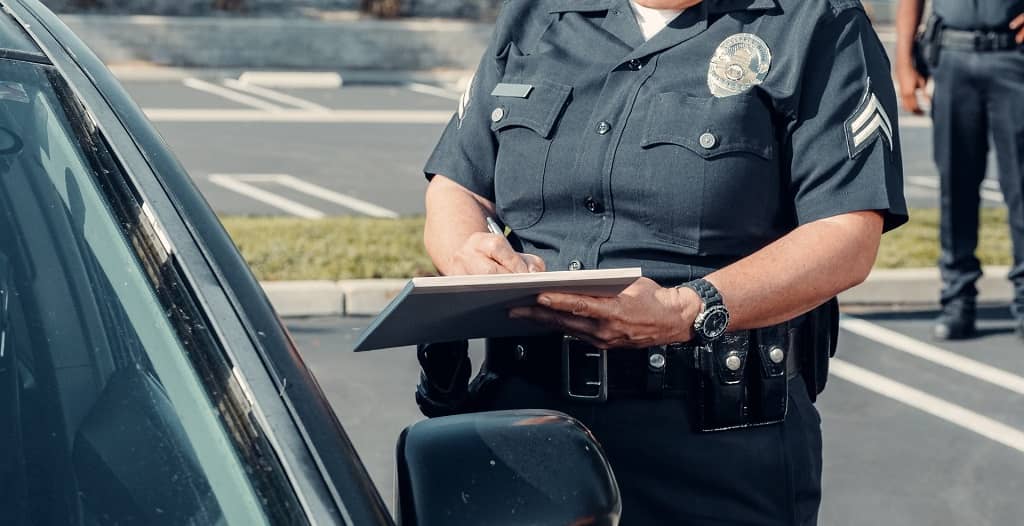What Happens If I Get A Traffic Ticket in Colorado and I live Out of State?

With the exception of Tennessee and Missouri, Colorado is bordered by more states than any other state in America. While sharing borders with seven states offers many benefits, it is important to remember that every state operates according to a different set of traffic laws. When visiting Colorado, it is up to you as a driver from out of state to follow Colorado state driving laws. Otherwise, you may find yourself on the receiving end of a traffic ticket. Below are four steps for you to take if you get a traffic ticket out of state.
What should you do if you get a traffic ticket out of state?
Receiving a traffic ticket is never a pleasant experience. But it can be particularly stressful if you are ticketed in another state. Whether you are on your way to a destination in Colorado, or on your way back to your home state, it is important to follow four simple steps if you receive a ticket.
Step One: Do not ignore the ticket
Just because you live in another state does not excuse you from complying with Colorado driving laws. Unfortunately, One of the worst things you can do is to ignore your ticket or tossing it in the trash. Ignoring a ticket or discarding it may result in one or more of the following consequences:
- Your license could be suspended in your home state
- You could face a default judgment
- A warrant could be issued for your arrest
- You could face steeper financial penalties
Step Two: Decide whether you want to pay the fine or fight the ticket
This may sound like a simple decision. However, there are many variables to consider before you decide to fork over payment or decide to fight your citation. Here are some factors you should consider before finalizing your decision:
- Your past driving record. If you have a squeaky clean record, prosecutors and judges are more likely to be lenient with you or dismiss the charges.
- The type of traffic violation. Not all traffic violations carry the same level of severity. Serious violations should be avoided whenever possible.
- Your total number of points. If you are a point or two away from a suspended license, it is likely in your best interest to fight the traffic ticket.
- Insurance consequences. Often times your insurance will look more favorably on some types of charges rather than others. Sometimes charges carry the same points or penalties, but one may not increase your insurance rates while the other could cause rates to spike.
Step Three: If you decide to pay the citation, send your payment right away
“Any citation payable to the Department of Revenue must be postmarked within 20 days of the violation date in order for payment to be applied to the citation and to prevent the citation from being sent to the court.” – Colorado Division of Motor Vehicles
If you choose to pay your citation, do not procrastinate. You have 20 days from the date of the violation to remit payment and stop your citation from ending up in the hands of the Court. The Colorado Division of Motor Vehicles offers a variety of payment options, including the following:
- Pay online by following the prompts given to you by the Colorado Division of Motor Vehicles. It takes about five minutes to pay online.
- Mail a check or money order made payable to the Colorado Department of Revenue. Make sure your payment is postmarked within 20 days.
- Pay with cash at an authorized Colorado Department of Revenue office location.
Step Four: Call an experienced attorney in Colorado to contest your ticket
“When you receive a traffic ticket out-of-state, however, you’ll have to go back to the county in which it was issued in order to contest the ticket… If you do opt to contest the ticket, make sure that you hire an attorney from that state to represent you.” – Traffic School Online
If you decide to fight your ticket, the best thing to do is to call an experienced Colorado traffic violation lawyer. While you might be tempted to seek guidance from a lawyer in your home state, an attorney with a proven record of success contesting traffic tickets in Colorado is recommended.
How can a Colorado traffic violation lawyer help you with your ticket?
Navigating the complexities of Colorado’s driving laws can be overwhelming. But this process can be especially difficult if you are not from Colorado. If you find yourself facing a traffic ticket in Colorado, the best thing to do is to contact a trusted traffic violation lawyer. There are many ways a lawyer can help you with your ticket, including the following:
- Help you decide whether you should pay your citation or fight it
- Maximize your chances of your ticket being dismissed
- Minimize the chances of your license being suspended
- Communicate with law enforcement officials and judges on your behalf
Be sure to reach out for legal guidance right away in order to avoid missed deadlines and potential consequences. With the support of a skilled attorney, you can enjoy peace of mind knowing an experienced legal expert is handling your traffic ticket. Contact us today for a free case review if you are facing an out of state traffic ticket – we’re here to help.


